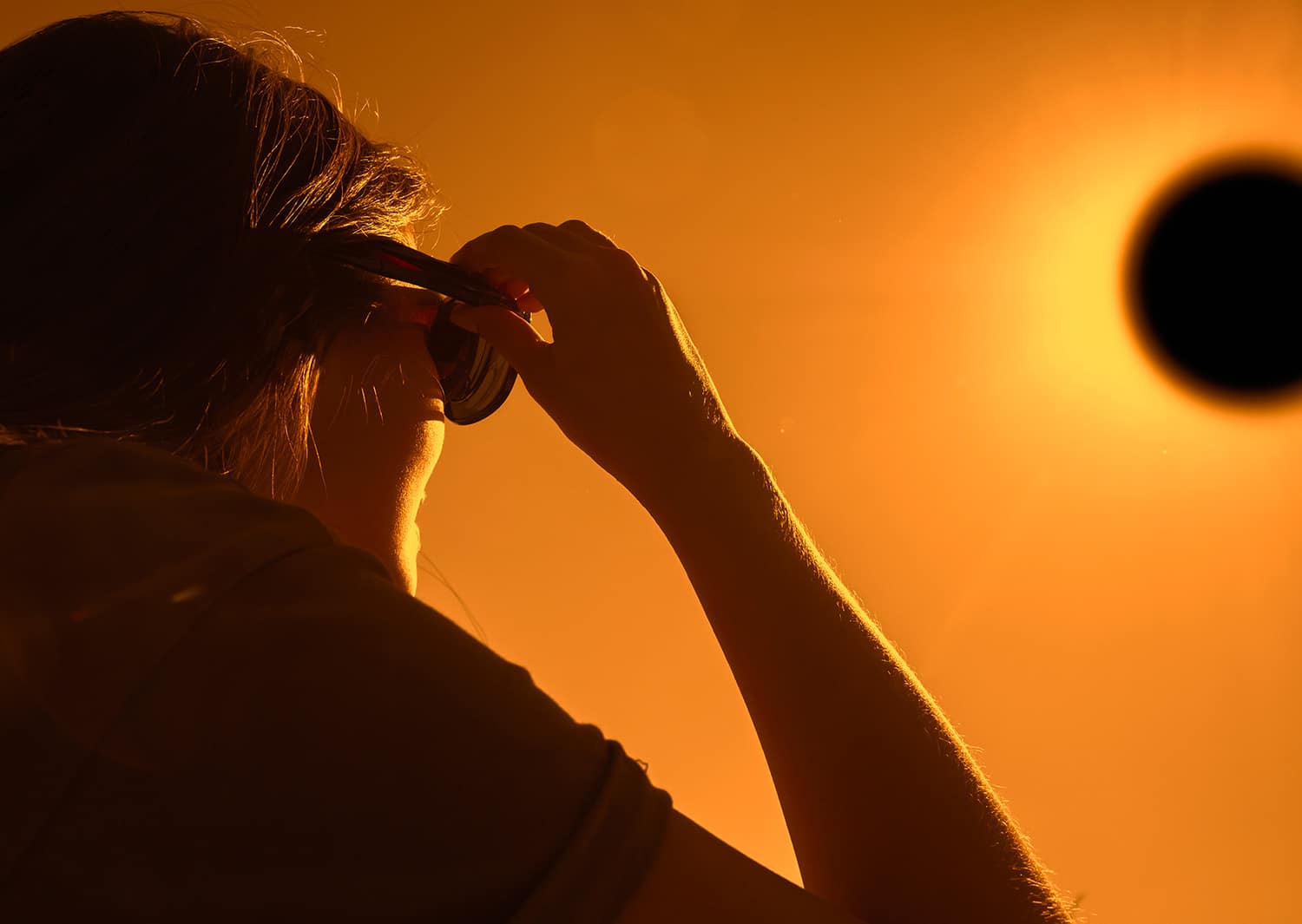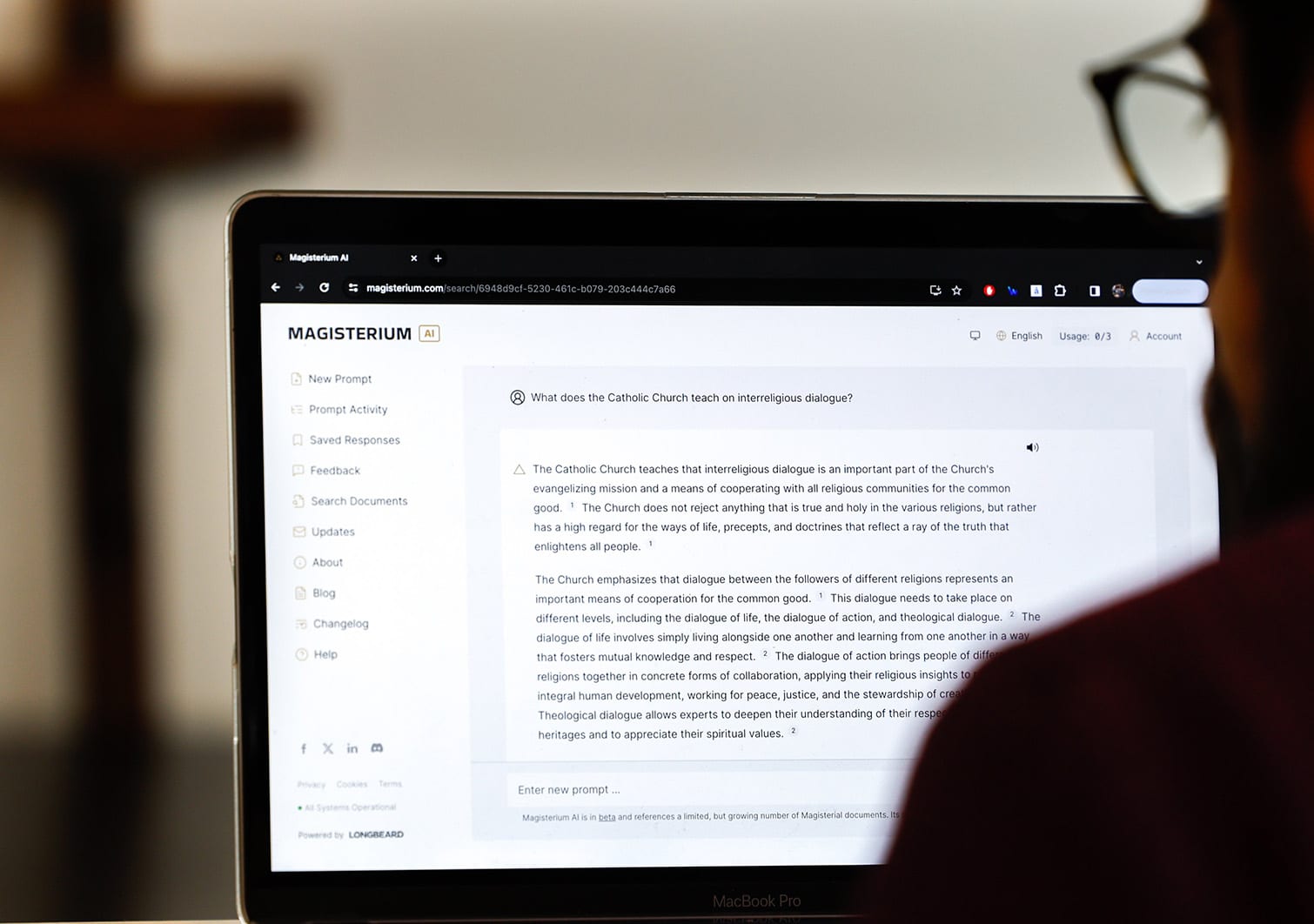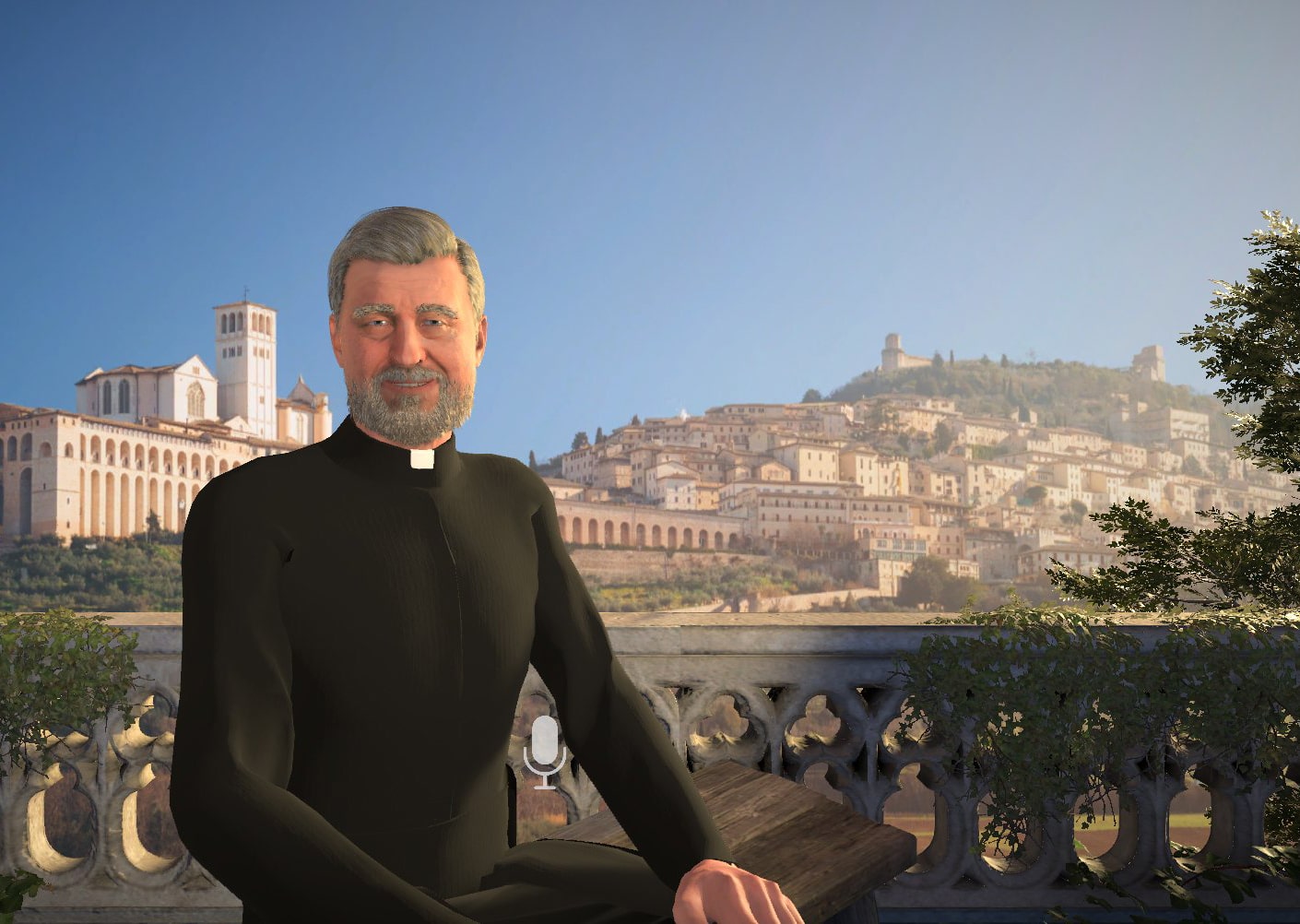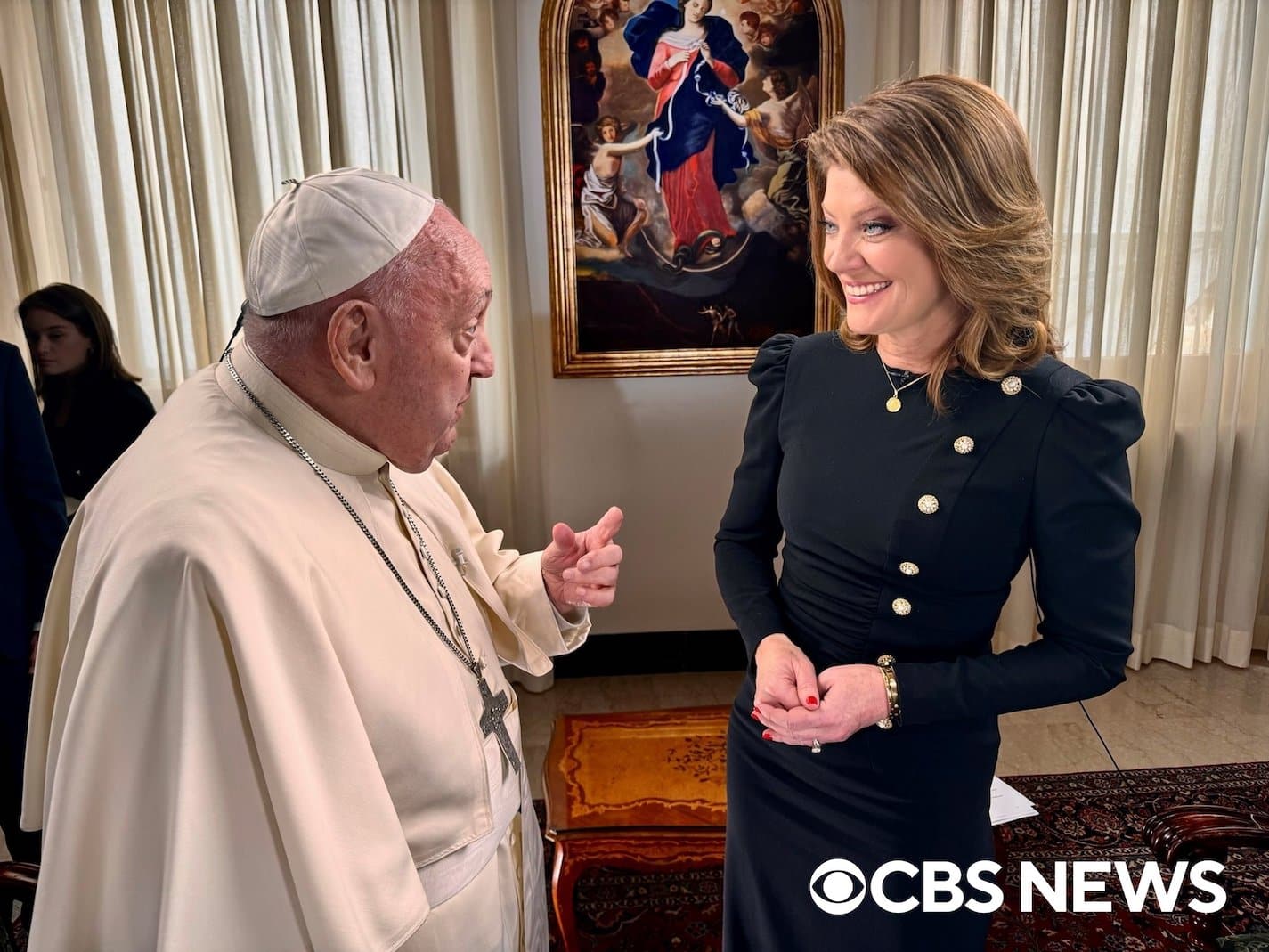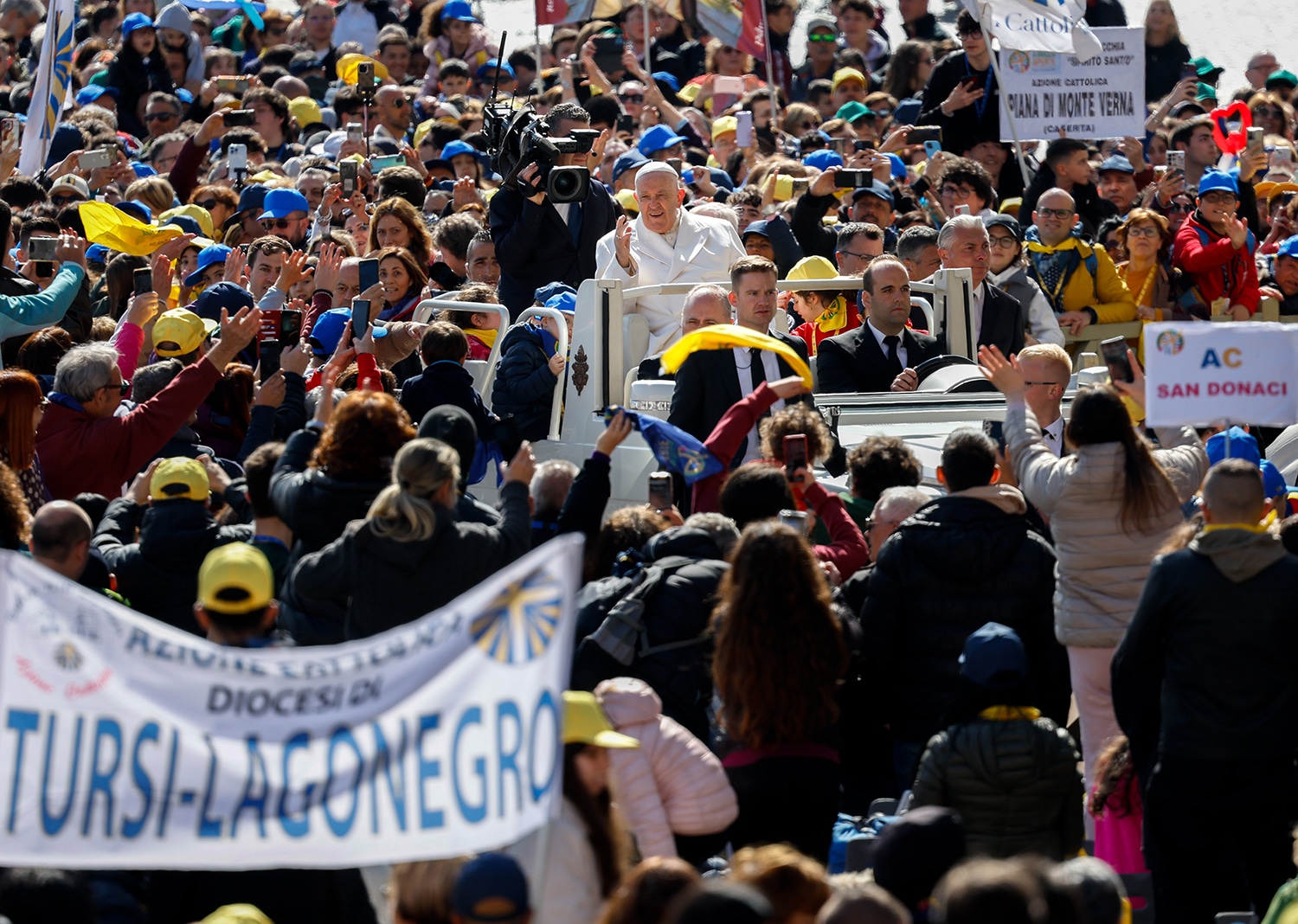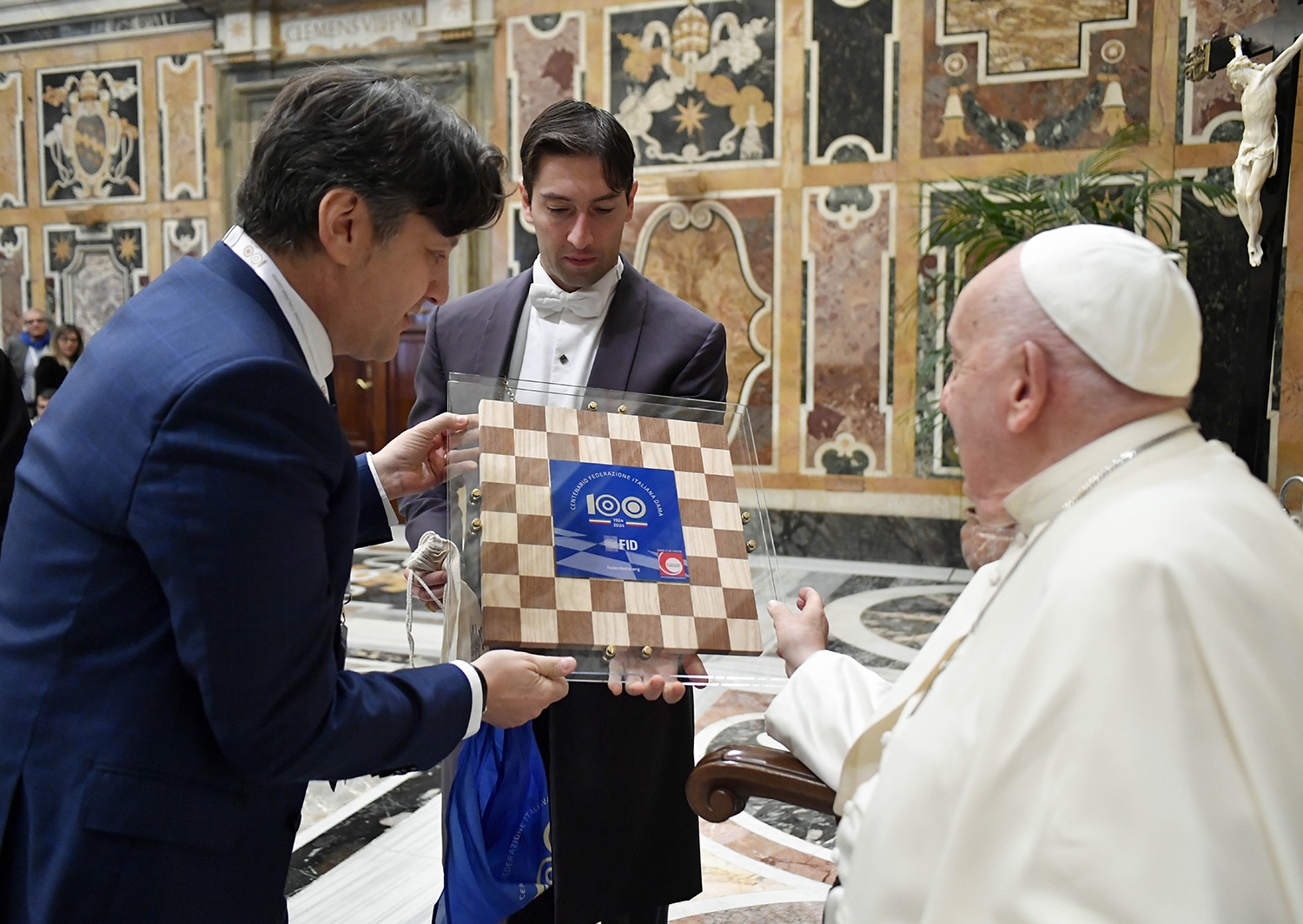A week before the solar eclipse that passed over much of the nation, I wrote an essay about it. I had a whole thesis worked out about how the sun is like Jesus and the moon is like the sacraments. I said that the power and glory of Jesus is like the blinding blaze of the sun, and although we live every day in its presence, we can only look upon it when it’s covered. Jesus is like the life-giving, illuminating, warming, but unapproachably brilliant sun, and he covered himself in mortal flesh for thirty-three years so people could live and walk with him, and now he covers his divinity under the species of bread and wine so we can see him, and eat him, and not be burned up. Someday, I said, our spiritual eyes will be changed so that we don’t need protection, but can behold him directly for eternity in Heaven.
Then I thought, maybe I should see the eclipse first.
So we packed a gigantic lunch and our special sunglasses and piled into the car, and plowed through hours of traffic to the spot up north where we could see the eclipse.
Did you see it? Were you there?
I saw it. I was not prepared.
I know why a solar eclipse happens. I’m very familiar with the science, and I’ve seen the little animated models, and I’ve seen countless amateur and professional photographs of total solar eclipses, too. I’ve also seen a partial solar eclipse and many lunar eclipses. I saw Haley’s Comet, and I’ve seen the rings of Saturn, and I’ve seen meteors so big and bright they leave a green streak across the sky. I’ve seen things in the sky that filled me with wonder and left me gasping and grateful for the strange beauty of the universe.
This was different. And it was not Jesus.
A sensation larger than loss
What was it? Well, it was the moon lining up so that it blocked our view of the sun, first a little bite gone, and then a wedge, and then so much that the sun was just a mere, glowing, curved rod of light. It was the corona of the sun flaring out from around the moon, so that we could look at the sun without shielding our eyes. And we went from sweating in the sunlight to shivering cold, and the darkness that fell wasn’t the darkness of early morning or evening, and it wasn’t like an oncoming storm or heavy weather at sea. It was a new color of light and quality of air that went right through my body, and I was afraid. Even though I knew what I was looking at.
Right before the eclipse reached totality, several shirtless young men began to howl like wolves, clearly pulling off a little joke they had arranged ahead of time. But when the sun was entirely gone, they fell quiet. It was fearfully quiet. We sat on a hill on the grass, and all around us people stood up, doing nothing but beholding. People called out and shouted; people wept. I wept, and I said, “Oh, oh, oh,” as if that were saying anything. It was just … more. More than I was imagining. More than I had the words for.
And it wasn’t Jesus. It was just the sun, and just the moon, our old round friends who have been rolling and spinning in their dutiful dance for more millions of years than we can know.
But when the sun came back, when the shutter of the eclipse began to open and the glowing bronze rod began to emerge on the other side, I was so glad, and relieved, and grateful. I had been truly afraid with a fear that doesn’t bother with scientific explanations. It was a sensation larger than loss, because to feel the loss of something, you have to have some comprehension of what it was you used to have. This was larger than loss. The top of my head blew off and my chest was empty, and that is how it felt. Oh, oh, oh.
An experience beyond words
So, there is no lesson from an eclipse. I threw my essay out. Being present as it happened was a reminder at how small and fruitless lessons are, all lessons. It is what we call “numinous” — something that feels religious and mysterious and impossible to explain. It is not an emotion, but it is something otherworldly that comes to us without our bidding because there is something so much more than what we are.
That is Jesus. Not the sun, not a lesson, not a symbol or an analogy, but something that comes to us unbidden and makes words senseless, and all you can do, when you come to yourself, is to beg other people to see it, too. Something you cannot plan or make occur, and something that, when you encounter it, you cannot describe and cannot forget. Something you would never confuse for anything else.
And yes, he clothed himself in human flesh so we can endure his presence in our world, and he continues to come to us eclipsed, as it were, in bread and wine, so mundane we can easily ignore him or take him for granted.
But we don’t know what he is. We don’t have the eyes to see him or the words to comprehend him. We can’t even do that for the sun, and that’s just the sun. We see more clearly the power and light and heat of the sun when it is momentarily covered.
But Jesus has not yet shown his power. He will. When he does, you will not mistake it for anything else, and you will have nothing to say.

